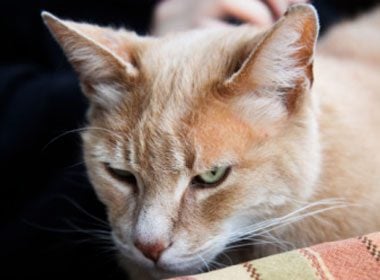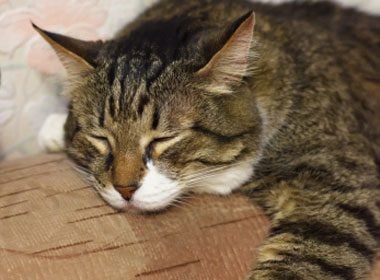
Switch the Food
Switch to canned food instead of dried, as water consumption is necessary to stave off kidney issues, a common concern. Put out multiple water bowls and make sure they’re changed regularly. Low-protein food will help make the digestion and elimination process more comfortable for older cats.

Look Out for Signs of Discomfort
Cats are good at hiding pain, so if yours is more reclusive, sedentary or quiet than usual, head to the vet. Arthritis, for example, is tough to detect but can be treated with supplements, painkillers or diet.

Check on the Paws
As a cat ages, he’ll develop brittle toenails. Check nails regularly and clip when they’re getting long.

Keep Them Eating
Muscle wasting is an issue that aging felines-like aging humans-face. Encouraging your cat to eat by providing variety, warm dinners and three or four smaller feedings through the day will help keep him strong.

Know the Warning Signs
Cats-especially those 14 and over-can suffer from cognitive disorders similar to dementia. Veterinarian Bernie Caplan, of Toronto’s Annex Animal Hospital, says if your cat begins to miss the litter box, hides, sleeps more often, stops grooming or cries for no reason (often at night), he could be ill.

Check Their Eyes
If you notice your cat struggling to move around or bumping into things, she might have a vision problem. A cataract will give a cat’s eye an opalescent quality, but a tumour or a retinal detachment can only be detected with an exam.

Brush Their Teeth
Brush your cat’s teeth regularly: as cats age, they’re more prone to plaque, tartar buildup and the like. Bad breath or difficulty chewing can be a sign it’s time for dental work.